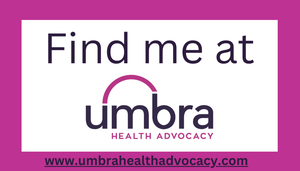The rising cost of medical care in the U.S. is a significant burden to patients—especially those who are uninsured or underinsured—as they find themselves strapped by medical debt. Ironically, much of this medical debt is for services provided by non-profit hospitals which, as part of their requirements for tax-exemption, are required offer financial assistance (or “charitable care”) to patients who qualify based on federal poverty guidelines.
As an independent patient financial advocate, I receive endless inquiries from patients whose medical bills are correct but unaffordable. In this situation, my first question to the patient is, “Have you applied for financial assistance through the hospital?” Nine out of 10 times, their answer is “No,” or “No one told me that was that was an option.” Instead of being offered financial assistance right out of the gate, patients are being offered monthly payment plans they cannot afford or, even worse, medical credit cards that allow them to make monthly payments (plus interest!) toward their already-unaffordable balances.
Case in Point
A potential client reached out to me last year regarding her husband’s nearly $500,000 balance after a weeks-long hospital stay for COVID. When she first contacted the hospital to see what could be done about the large balance, the hospital offered a 36-month payment plan—at roughly $13,000 per month (um, hello?)! After verifying that there were no obvious billing errors and that their hospital indemnity policy had paid the $100k it had promised to pay, I quickly identified that the hospital was a non-profit and sent the client a link to the hospital’s financial assistance policy. She texted me a couple weeks later to let me know they’d been approved for a near-total write-off, with a remaining balance of $12,000 to be paid off over 36 months at $333/month—slightly more doable than $13,000/month!
Who Qualifies for Financial Assistance?
Eligibility criteria for hospital financial assistance can vary depending on the healthcare facility and local regulations. Basically, each hospital’s requirements for charitable care are different, but most are based on income, insured status, assets, and residency.
Patients often assume that their annual income is such that they won’t qualify for any financial assistance, but that might not be the case. Many hospitals offer some percentage of discount for patients whose annual household income is at/below 400% of the federal poverty level—meaning a family of four with a gross household income of $120,000 or less could qualify for at least a partial write-off.
Not sure whether you’d qualify for financial assistance? Apply anyway! Applying for financial assistance buys you more time in the billing cycle, as the hospital is not allowed to bill you while your application is being reviewed. And even if you don’t qualify for 100% financial assistance, you may qualify for a smaller write-off, which is better than none at all!
How to Apply for Financial Assistance
A hospital’s offer of financial assistance can often be found on the back of one’s hospital bill (who reads the back of their bills, btw?), but you’ll usually need to search online to find the application itself—the hospital’s not going to make it so easy on you as to put the application itself in with that bill they mailed you!

Here are a few pointers for applying for financial assistance:
- Search online for “(your hospital’s name) + financial assistance,” or ask the hospital billing department to send you a hard copy of their application.
- Each hospital’s financial assistance policy, guidelines, submission requirements, etc. may be unique. Follow the directions for your hospital and submit all requested documentation in a timely fashion—this whole process is easier before an account is sent to collections, and some hospitals may not let you apply once the account has been turned over!
- Worried that you don’t meet the financial guidelines, you’ve gone past the timeline for applying, and/or you don’t have appropriate documentation? Again, I say, apply anyway! The worst-case scenario is that you’ll be denied (which you can appeal) or the hospital will pend your application while they request additional documentation from you. In the event that you are denied financial assistance and end up having to negotiate your balance, many hospitals will require that you apply for and be denied financial assistance before they will entertain a negotiated offer.
- Still not certain how to handle the process? Reach out to an independent patient financial advocate who can point you in the right direction or contact Dollar For—an organization whose sole purpose is to assist patients in applying for financial assistance.
The Bottom Line
If you’re faced with a hospital bill that you’re unable to afford, find out if the hospital offers financial assistance. Other than the time it takes for you to complete the application and gather your supporting documents, it never hurts to apply—and you might just be pleasantly surprised.






